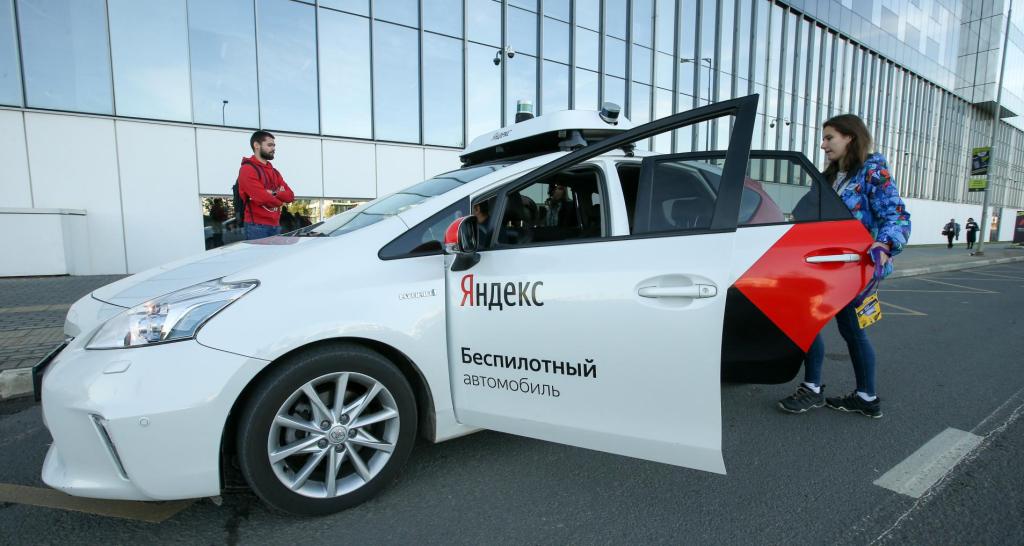Self-driving cars are still many years away from becoming a ubiquitous reality, but today, one of the bigger efforts to build and develop them is taking a significant step out as part of its strategy to be at the forefront for when they do. Yandex — the publicly traded Russian tech giant that started as a search engine but has expanded into a number of other, related areas (similar to U.S. counterpart Google) — today announced that it is spinning out its self-driving car unit from MLU BV — a ride-hailing and food delivery joint venture it operates in partnership with Uber.
The move comes amid reports that Yandex and Uber were eyeing up an IPO for MLU last year. At the time, the JV was estimated to be valued at around $7.7 billion. It’s not clear how those plans will have been impacted in recent months, with COVID-19 putting huge pressure on ride-hailing and food-delivery businesses globally, and IPOs generally down compared to a year ago.
In that context, spinning out the unit could help improve the unit economics and cost base of the MLU unit, but Yandex says that it’s being done to double down on more focused investment in self-driving.
“Yandex’s motivation behind the spin-off is twofold,” said a spokesperson. “From the business standpoint, we are increasing our stake in a strategically important business with lots of potential for growth. From the technology standpoint, self-driving technology is quickly moving forward to become a viable business.”
She added that an IPO of the mobility unit “is not one of the company’s priorities right now. As of right now, we aren’t considering an IPO. We believe that Yandex.Taxi can get a lot more from its synergies with other Yandex businesses.”
As part of the spin-out, Yandex is investing $150 million into the business. That will include $100 million in equity, plus $50 million in the form of a convertible loan, the company said. It added that it had invested some $65 million in the business up to now. Yandex is buying out some of Uber’s shares in this process and will now have a 73% stake in the spun-out business, with Uber owning 19%, and the remaining 8% owned by Yandex self-driving group (SDG) management and employees.
“We are excited to increase our stake in this strategically important part of our business,” said Arkady Volozh, CEO and co-founder of Yandex, in a statement. “In just a short period of time, we have achieved breakthrough results in autonomous driving. We firmly believe in the future of autonomous mobility as a safe and cost-effective form of transportation with a vast addressable market. The additional capital that we are investing in SDG will allow it to continue to pursue the R&D and productization of autonomous mobility.”
Dmitry Polishchuk, who has been running the unit, will be the CEO of the new self-driving group.
Yandex is not disclosing the valuation of the self-driving unit, nor of MLU, but when the spin-out first occurred in 2017 as a part of a bigger strategy at Uber to divest some of its less profitable, ultra-competitive international operations ahead of its IPO, the larger MLU operation was valued at $3.72 billion. In other words, it has more than doubled in valuation since then, according to at least some estimates.
In the interim, MLU has made some acquisitions to expand in specific regions, and it has taken on a few other businesses from its biggest shareholding parent, such as its car-sharing business (not clear how and why this was not part of the MLU JV already, to be honest). And separately, its self-driving car unit has made some significant headway.
That has included building up a fleet of some 130 vehicles across Russia, Israel and the U.S. for testing, with that fleet collectively clocking up 4 million autonomous miles across cities and different weather conditions — with driving being a critical part of how self-driving car companies “teach” their AI algorithms to work. It also licenses tech to car makers, such as in this deal with Hyundai.
Yandex also claims that its robotaxi service, launched in 2018, was the first to come to Europe. It has also built its own autonomous delivery robot, Yandex.Rover, which is also coming over to the self-driving unit with the deal.
As with Google-parent Alphabet’s Waymo self-driving division, the logic behind Yandex’s self-driving car unit has been that it can keep costs down by tapping into IP built and developed by Yandex’s substantial engineering team.
That deal, Yandex said, will remain in place after the spin-off with access to company infrastructure, resources and more; and it will continue to have a commercial outlet: selling its technologies, as and when they are developed, to Yandex.Taxi, which forms the heart of the ride-hailing and food-delivery operations of MLU, as well as to other e-commerce and logistics efforts.
Yandex — which is publicly traded and currently has a market cap of nearly $23 billion — said that it will continue to consolidate the results of Yandex SDG and will report it as part of its “Other Bets and Experiments” category in its earnings.































Comment